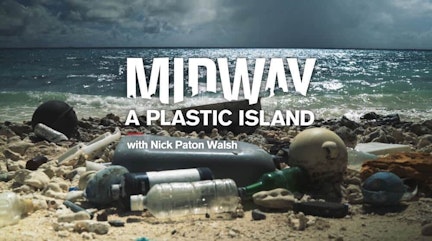Perspectives

Overuse during the last few years means that one of the major issues in talking about sustainability today is the danger it will be viewed as that worst of all things – an industry buzzword. Yet despite this, it shouldn’t deter us from tackling sustainability head on, because the issues surrounding it are essential to all our futures. To see how important it has become in today’s world, you only have to look at the change in attitudes in our personal and professional lives, the coverage and focus that climate and the environment now receives at global events such as the UN General Assembly, and the huge number of protest strikes (largely driven by the younger generation) taking place around the world.
As a parent, I’m increasingly conscious of the world that our children, and their children, will live in. Climate change is scary and overwhelming, but, for me, sustainability is the entry point at which we can all try and make a difference. A greater awareness of the environmental problems we all face, and the differences we as individuals can make, has meant, as a family, we’ve become much more conscious of trying to do our bit – whether that’s more effective recycling, sourcing local produce and thinking about our diet, or my nine year old recently asking to join our local climate strike to lend his voice to the growing debate.
And we’re not alone. Last year, a Nielsen survey found that 73% of global consumers would change their consumption habits to reduce their impact on the environment, while 41% were willing to pay more for products that contain all-natural or organic ingredients. All the evidence shows that people are getting ever-more serious about sustainability.

Working at CNN, I’ve certainly noticed how the climate crisis and issues around sustainability have become even more central to our offering. Whether that’s the coverage of deeply troubling events such as last year’s fires in the Amazon or Siberia, the superb reporting from Nick Paton Walsh on the plastic engulfing the Midway Atoll, or Call to Earth, a new series across all CNN platforms about the change that individuals, organisations and communities can make to the world around them to combat the effects of climate change. We’re telling these stories not only because we know how important they are but also because we know that our audiences – the Hunt household included! – want to find out more.
Consumers demand authenticity so brands need to be careful they not only talk the talk but walk the walk
This is backed by the data and the trends we’re seeing from our audiences. After it went live in May 2019, the CNN Climate Instagram page garnered over 330K followers in its first six months and deepened our engagement with wider audiences about issues surrounding the environment. Analysis conducted through Global Web Index’s Q1 2019 survey shows that 52% of CNN’s audience consider themselves environmentalists and 64% would pay more for sustainable products. The fact that 50% of CNN audiences also feel positive about the environment shows that there’s room in the content mix for more positive stories about initiatives to tackle climate change, as well as the pieces about the catastrophic consequences we’re seeing.
We’re also seeing a clear place for brands in this space. Heading up Create, our global brand studio, I’m seeing greater demand from clients for campaigns that align with their core values. This is reinforced by people’s increasing expectation of brands and the role they play. An Edelman survey conducted in 2018 showed that people now look to business and brands, rather than government, for purpose – 64% of consumers expect companies to lead on change, through better ideas, investment in innovation and, ultimately, action.

And from a brand’s perspective, we’re seeing more evidence that making smart environmental decisions isn’t just about how companies present themselves but is actually good for business. When CNN’s Julia Chatterley interviewed Adidas CEO Kasper Rørsted last year, he said, “Having products where you have a sustainability value proposition makes a big difference in the market. We see it as a significant business opportunity.” However, our experience also shows that companies need to be wary of how they approach messaging around sustainability. Consumers demand authenticity so brands need to be careful they not only talk the talk but walk the walk. Any entry into purpose-driven content marketing campaigns will backfire if there’s even a whiff of hypocrisy or ‘greenwashing’.
In conclusion, I think there are three important factors at play here: a) brands conducting more purpose-driven marketing in line with their core values; b) news media like CNN having more coverage of climate, environment and sustainability issues; and c) growing demand from consumers for content and information about the topic. As these factors come together, there’s a natural space for brands, media and consumers to coincide. But the experience will only resonate if it’s meaningful and authentic – without that, ‘sustainability’ and the issues surrounding it will in some people’s minds be dismissed as a buzzword.







